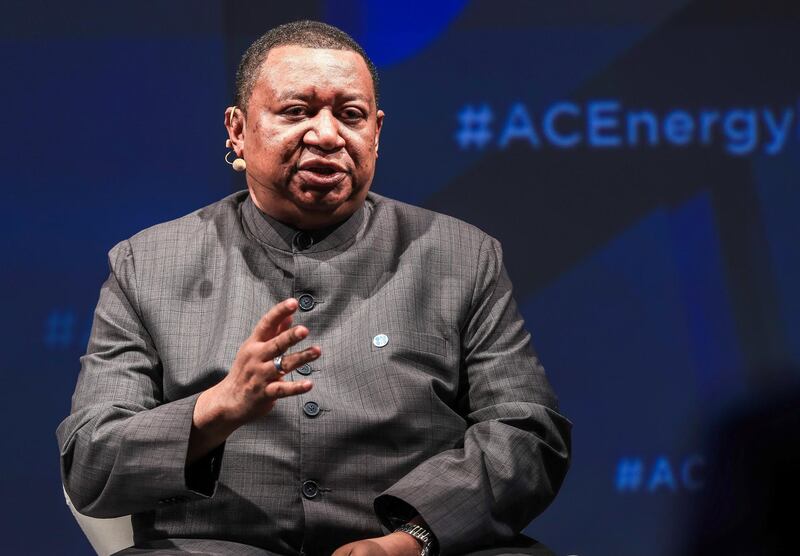The US administration’s push to reduce Iranian crude exports to zero is “practically impossible”, according to Opec’s secretary general.
"We keep hearing that the objective is to bring down Iranian exports to zero but practitioners in this industry know very well that it is practically impossible to bring down the exports of Iran to zero,” Mohammed Barkindo said in an interview with Bloomberg TV from Baku, Azerbaijan on Tuesday where the Opec+ Joint Ministerial Monitoring Committee had its meeting.
“The waivers, the extension of the waivers or the non-extension of the waivers continue to be one of these growing uncertainties in the market because of the the importance and size of Iran in the supply demand balance."
Iran, Opec's fourth-largest oil producer, has seen its production decline by 7 per cent to 2.74 million barrels per day in February from November, when the White House re-imposed sanctions against the country. Its output, which was at 3.8 million bpd in the second quarter of 2018, had plunged in the following months amid anticipation of the slapping of sanctions in November.
The Donald Trump administration, however, granted eight nations waivers to continue importing crude from Iran under the provision that they would gradually reduce imports over the coming months. The US had said its goal was to reduce Iran’s exports to zero with the waivers up for review in May.
With oil prices surging to four-month highs of $67.54 for Brent on Monday and an increasingly tightened market due to loss of production in Venezuela, the renewal or non-renewal of waivers could become a deciding factor for the markets over the coming months.
Mr Barkindo also noted in his interview that dialogue had been established with “stakeholders in Washington” to discuss a legislation that is being tabled to challenge Opec’s work in correcting supply in the oil markets. The No Oil Producing and Exporting Cartels Act (NOPEC) congressional bill asks for state immunity to be removed and for Opec to be sued under US antitrust law for anti-competitive attempts at what is being perceived by some legislators to be the group’s manipulation of supply and prices.
“Such a legislation will not serve the best interest of the United States nor will it serve the interests of the global oil industry,” said Mr Barkindo.
"Therefore we remain optimistic that reason will prevail and that the right thing will be done."
The secretary general observed that independent US shale producers who have collectively helped the country become the world’s top crude producer with 12 million bpd of output were a “natural ally to work with”.
"They are very much appreciative of the efforts of the parties [Opec+] and we both agreed that we’ll continue this dialogue with them,” he said.
Opec led by Saudi Arabia and members outside the group led by Russia convened in the Azeri capital for a joint ministerial monitoring committee meeting to discuss their ongoing pact to reduce supply.
Opec+, as the alliance is called, had pledged at the end of December to remove 1.2 million bpd from the markets for six months starting January.
At their latest meeting, the committee recommended cancellation of a planned extraordinary meeting in the Austrian capital of Vienna in April. Opec+ will meet next in June to decide on whether to extend the cuts.
The oil markets remained tight with Opec vowing to “stay the course” as it reckons with continuing decline in Venezuela and surging production from the US.








